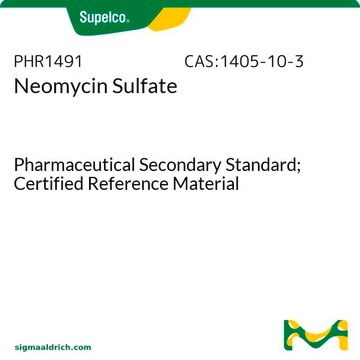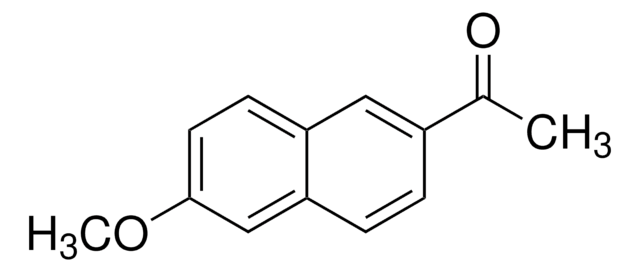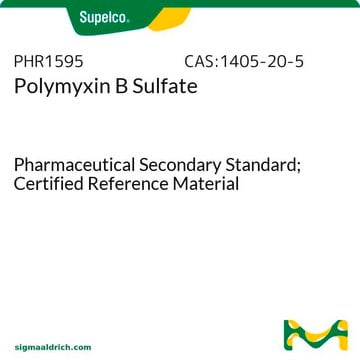N0300000
Neamine
European Pharmacopoeia (EP) Reference Standard
Synonym(s):
2-Deoxy-4-O-(2,6-diamino-2,6-dideoxy-α-D-glucopyranosyl)-D-streptamine
About This Item
Recommended Products
grade
pharmaceutical primary standard
API family
neomycin
manufacturer/tradename
EDQM
application(s)
pharmaceutical (small molecule)
format
neat
shipped in
wet ice
storage temp.
−20°C
InChI
1S/C12H26N4O6/c13-2-5-8(18)9(19)6(16)12(21-5)22-11-4(15)1-3(14)7(17)10(11)20/h3-12,17-20H,1-2,13-16H2/t3-,4+,5-,6-,7+,8-,9-,10-,11-,12-/m1/s1
InChI key
SYJXFKPQNSDJLI-HKEUSBCWSA-N
Looking for similar products? Visit Product Comparison Guide
General description
For further information and support please go to the website of the issuing Pharmacopoeia.
Application
Established for the preparation of reference solutions (d) in the testing of related substances in framycetin sulfate and neomycin sulfate using liquid chromatography (General text 2.2.29), according to the monographs 0180 and 0197 of European Pharmacopoeia.
Packaging
Other Notes
related product
Signal Word
Warning
Hazard Statements
Precautionary Statements
Hazard Classifications
Eye Irrit. 2 - Skin Irrit. 2
Storage Class Code
11 - Combustible Solids
WGK
WGK 3
Flash Point(F)
Not applicable
Flash Point(C)
Not applicable
Choose from one of the most recent versions:
Certificates of Analysis (COA)
Sorry, we don't have COAs for this product available online at this time.
If you need assistance, please contact Customer Support.
Already Own This Product?
Find documentation for the products that you have recently purchased in the Document Library.
Customers Also Viewed
Our team of scientists has experience in all areas of research including Life Science, Material Science, Chemical Synthesis, Chromatography, Analytical and many others.
Contact Technical Service







